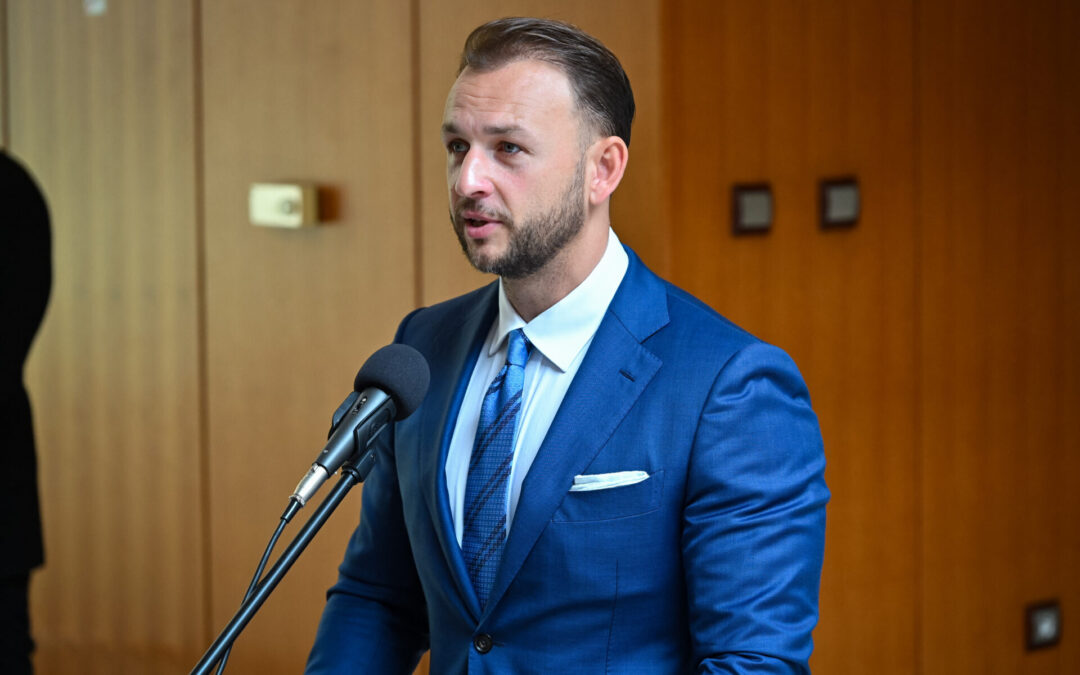BRATISLAVA/LUXEMBOURG – The EU’s security, the functioning of Schengen, and preparedness for crises were the central topics of Thursday’s meeting of the EU Justice and Home Affairs Council in Luxembourg. After the negotiations, Slovak Minister of the Interior Matúš Šutaj Eštok (Hlas-SD) stated this in a press report, informs the TASR reporter.
In several speeches, the minister expressed Slovakia’s positions on the priorities for the upcoming cycle of the so-called Schengen Council, the future of the EU visa policy, and the topic of data access for the purpose of effective law enforcement. He considers the debate on the status of Ukrainian citizens in the EU member states and a unified approach to further adjustments to their temporary protection important.
“Strong and protected external borders are a prerequisite for a successful fight against illegal migration,” he said during the discussion on ensuring the proper functioning of the Schengen area. He added that the EU must develop cooperation with third countries and ensure the success of returns, which should be one of the main pillars of migration policy. The Council of Ministers emphasized that the protection of freedom of movement and the security of citizens must remain a top priority. The reintroduction of controls at internal borders should only be an extreme measure, and only in cases where all alternative measures fail.
Šutaj Eštok reminded that the topic of the discussions also included the issue of visa abuse. The comprehensive collection of reliable and objective data could be aided by the new Eurodac system, as well as pressure to align the visa policies of third countries with whom the EU has visa-free travel agreements with the Union’s visa policy. “It must be clear to everyone that visa-free travel is a privilege, not a given. Maintaining it requires the long-term fulfillment of the conditions under which it was granted,” he emphasized.
Ministers in Luxembourg also addressed issues related to the implementation of the asylum and migration pact, for which the European Commission issued a joint implementation plan on Wednesday. An important agenda was also the further steps regarding Ukrainian citizens who came to the EU after the start of Russian military aggression. According to the Slovak ministry, temporary protection has proven to be an effective tool, and if not extended, there would be a risk of overloading the asylum systems of member states due to a significant increase in applications for international protection. The ministers therefore agreed on the need to extend it.
 go to the original language article
go to the original language article
